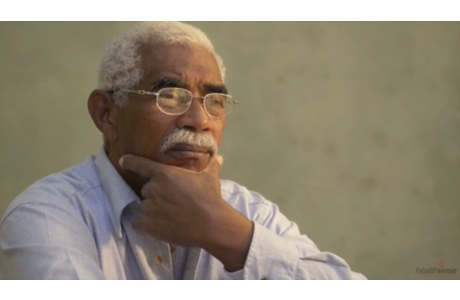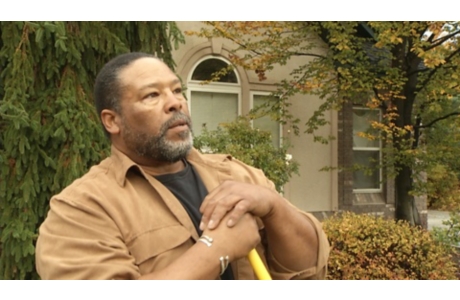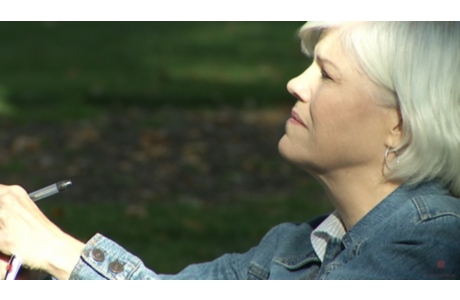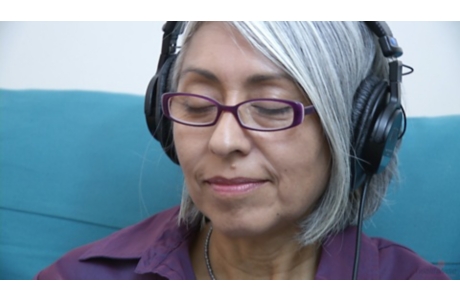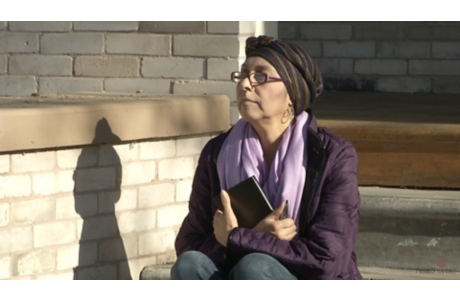Cancer Support: Managing Stress
Topic Overview
“I always considered myself quite good at handling stress, but cancer was a whole different story. It’s the kind of stress nothing can prepare you for. My doctor suggested I see a counselor to learn some stress management skills. I wasn’t sure at first, but I’m glad I stuck with it because these skills have really helped me go on with my life.”—Clara, 64
“I was pretty stoic for the first few months after my diagnosis. Then I started having bad headaches and couldn’t seem to stay focused at work. I told my doctor, and he said it was probably due to stress. He said if I could find ways to manage my stress, I’d feel better. So now I’m determined to get a handle on it.”—Dale, 59
Signs of stress
Everyone deals with cancer in his or her own way. And everyone reacts differently to stress. You may have physical signs such as headaches and fatigue, although those physical signs could also be side effects of treatment.
But stress can also cause changes in your thoughts or mood. And negative feelings are the last thing you need when you’re facing cancer and cancer treatment. They get in the way when you need to focus on feeling as good as possible. You may:
- Find it hard to focus because you’re worried about cancer.
- Feel frustrated and lose your temper more often because your medical bills are growing.
- Yell at others for no reason.
- Feel cranky and unable to deal with even small problems.
- Feel jumpy or tired.
Things you can do
Start by doing some simple relaxation exercises, such as progressive muscle relaxation and roll breathing.
And let your doctor and medical team know that you’re feeling stressed. When they know how you’re feeling and what’s bothering you, they’re better able to give you the care you need.
Find ways to fight stress
There’s a lot you can do to lower your stress. The key is to find one or two ways to cope with stress that work for you. Try to pick at least one you can do even when your energy is low. You can try different things until you find what works best for you.
Here are some examples:
- Try guided imagery. It helps you use your imagination to take you to a calm, peaceful place. You can do guided imagery on your own. Or you can do it with audio recordings, an instructor, or scripts to lead you through the process.
- Do something active. Try whatever level of movement you can manage in your current state. A short walk can make a big difference.
- Connect with others. Tell a family member or friend that you’re feeling stressed. Sometimes just talking about it makes it feel less overwhelming. Consider joining a support group. It helps to talk to other people who understand what you’re going through. Your doctor can help you find a cancer support group.
- Write. Start a journal. Writing about things that are bothering you may help you cope with stress.
- Let your feelings out. Talk, laugh, cry, and express anger when you need to. Talking with friends, family, a counselor, or a member of the clergy about your feelings is a healthy way to relieve stress.
- Do something you enjoy.Work on a hobby or a creative activity, read, watch movies, or play with a pet.
- Laugh.Laughter can help you forget about your troubles. Watch a funny movie or an Internet video, spend time with people who make you laugh, or find funny books or audio programs at your local library or bookstore.
- Practice gratitude. “Be thankful” might seem like strange advice when you’re facing cancer and all the stress that comes with it. But gratitude is linked to your sense of well-being, and it can boost the inner strength that helps you bounce back. It works by shifting your attention to the positive things in your life. To practice gratitude, you say “thanks” and you appreciate what’s important to you.
Counseling
It’s great to have family and friends who are good listeners. But not everyone has someone to talk to. And sometimes it’s easier to talk to someone who isn’t directly affected by your cancer. A counselor or therapist can help you work through the emotions and stress of cancer and simply listen to your worries and anything else you feel like talking about.
Different types of counseling include family therapy, couples therapy, group counseling, and individual counseling. Finding a good fit with a counselor is important. If you make an appointment with a counselor and find that you’re not comfortable talking to him or her, it’s okay to try someone else.
Talk to your cancer care team about what counseling might be available to you.
If you’re struggling
It’s okay to feel angry, sad, and frustrated when you’re facing cancer. It’s okay to grieve. But if these feelings or stress get in the way of your ability to carry on with daily activities and nothing seems to help, talk to your doctor. He or she has other resources that may be just what you need.
Where to learn more
The following booklets from the National Cancer Institute’s website may be helpful:
- Taking Time: Support for People With Cancer (www.cancer.gov/cancertopics/takingtime)
- When Someone You Love Is Being Treated for Cancer (www.cancer.gov/cancertopics/coping/when-someone-you-love-is-treated)
Health Tools
Health Tools help you make wise health decisions or take action to improve your health.
Current as of: December 19, 2018
Author: Healthwise Staff
Medical Review:E. Gregory Thompson MD – Internal Medicine & Kathleen Romito MD – Family Medicine & Elizabeth T. Russo MD – Internal Medicine
This information does not replace the advice of a doctor. Healthwise, Incorporated, disclaims any warranty or liability for your use of this information. Your use of this information means that you agree to the Terms of Use. Learn how we develop our content.
<script src=”https://conten


